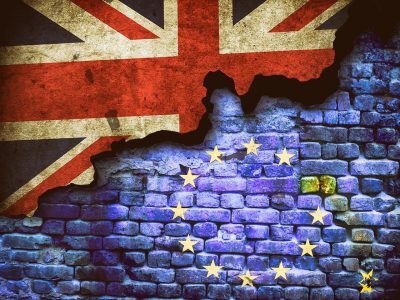Brexit, The Tories and the “Irish Question”

Almost 100 years on since the formation of the Northern Irish state, it is still the Irish question that is bedeviling politics in the United Kingdom. Brexit is not about Europe. It is about the Tories and increasingly about Ireland. First the Tories. Ironically the term for members of the Conservative and Unionist Party, to give it its full name, derives from an Irish word for robber and brigand. History has a wicked sense of humour. The daggers plunged into the backs of Margaret Thatcher, John Major, David Cameron and Theresa May that ended their prime ministerships all had Tory fingerprints. But relations with the European Union was the motive. It’s no joke, now time to send in the clown. Boris Johnson is a student of history and the new resident of No.10 Downing Street has one trick to pull off; get a Halloween Brexit. Failure to deliver will condemn the Tories to electoral oblivion. The nightmare on Downing Street.
But it is Northern Ireland where fantasy and reality meet, where history collides with the present.
There are those on the Tory benches in the House of Commons who keep on insisting that modern technology means there is no need for a hard border between Ireland and Northern Ireland, in actual fact, post-Brexit, the border between the European Union and Britain. They have no name for the company that can do this because there is none. The technology does not exist. Few mentioned the border during the EU referendum in Britain in 2016. It must be stated that no political leader in Ireland or Britain or Northern Ireland wants a hard border. But the uninterrupted passage of either goods or people from Ireland to Northern Ireland, from the EU to the UK, cannot be regulated by technology alone. Northern Ireland is the blind sport of the Tory party. One simple question will prove this. Ask any Tory politician how many counties are in Ulster? It’s a simple question. Most Tory politicians will probably say six. After all, isn’t Northern Ireland often referred to as the Six Counties. That answer however would be wrong. There are nine counties in Ulster, six make up the political entity that is Northern Ireland. All nine are, geographically, in northern Ireland.
Brexit will succeed or fail not on trade deals but the 500km-long border between Northern Ireland and the Republic of Ireland.
This crooked line has bedeviled British politics before. Back in 1920 it was it was not the European Union but another union, the United Kingdom that was being divided. London introduced the border (in 1921) as a temporary partition after the Irish rebelled. Catholic Ireland was breaking away from rule by London. The Protestant-dominated Northeast wanted to remain. So it was agreed that there would be a short-term boundary until a permanent solution was found. This was only meant to last, initially, a matter of about six months. In the time of the Troubles, between 1968 and 1998, the border became one of the most heavily policed in the world.
Then the Belfast Agreement of 1998 (the Good Friday Agreement), a remarkable political achievement, saw the need for such a border to vanish, as did the watchtowers and army patrols. With peace, the border more or less vanished. Ireland and the UK were in the EU. No violence, no need for a border.
For 20 years, people have come and gone freely. They cross into and out of Northern Ireland through approximately 300 major and minor crossings, though there are no checkpoints. The border is crossed 105 million times every year on an island with a population of about 6.6 million.
Brexit. And this where it borders on the criminal. A hard border, involving three jurisdictions, Ireland, the EU and Britain, could be restored in a place where the border has caused untold suffering.
An EU land frontier, separating the UK on the one side and a 27-member bloc on the other.
The “backstop” could solve this. This would allow a seamless border on the island of Ireland in the event that the UK leaves the EU without a deal.
But it would not be a complete break by the UK from the EU and Northern Ireland, especially, it would remain largely in the EU and would not need to impose border controls on goods coming from Ireland.
But then of course the Irish would get the blame for Brexit failing.
And many Tories still would not know how many counties there are in Ulster.

